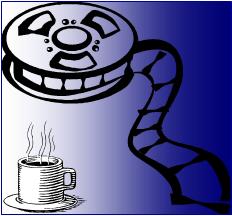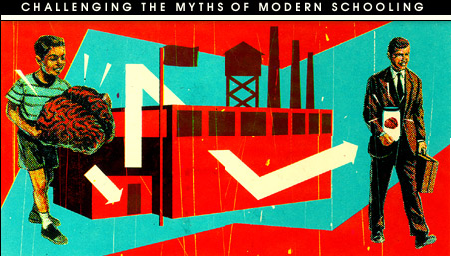

|
 |
Classic War Movies about Bridges (7/10)
|
Please go to the new Coffee Coaster site implemented more gracefully in Wordpress. This page: http://brianrwright.com/CoffeeCoasterBlog/?p=6343 |
George Segal ... Lt. Phil Hartman
Robert Vaughn ... Maj. Paul Krüger
Ben Gazzara ... Sgt. Angelo
Bradford Dillman ... Maj. Barnes
E.G. Marshall ... Brig. Gen. Shinner
Peter van Eyck ... Generaloberst von Brock
Joachim Hansen ... Capt. Otto Baumann
Sonja Ziemann ... Greta Holzgang
Anna Gaël ... French Girl (as Anna Gael)
Vít Olmer ... Lt. Zimring (as Vit Olmer)
Bo Hopkins ... Cpl. Grebs
Gen. Von Sturmer: General von Brock, you must prepare to destroy the Remagen bridge at the earliest possible moment.
Gen. von Brock: Destroy? We have 75,000 men who would be trapped on the other side of the Rhine.
Gen. Von Sturmer: And if the bridge falls to the enemy, are you prepared for the consequences?
Gen. von Brock: These men are all that's left of the 15th Army. Their only hope of salvation is that bridge!
Gen. Von Sturmer: The 15th Army will stand or die. Hitler has ordered that not one foot of our sacred soil will be yielded to the enemy.
Gen. von Brock: Herr Feldmarschall, if orders won wars, we wouldn't now be fighting with our backs against the Rhine, we'd be dancing at the London Savoy!
Dirk Bogarde ... Lt. Gen. Browning
James Caan ... SSgt. Eddie Dohun
Michael Caine ... Lt. Col. Vandeleur
Sean Connery ... Maj. Gen. Urquhart
Edward Fox ... Lt. Gen. Brian G. Horrocks
Elliott Gould ... Col. Robert Stout
Gene Hackman ... Maj. Gen. Sosabowski
Anthony Hopkins ... Lt. Col. John D. Frost
Hardy Krüger ... Maj. Gen. Ludwig
Ryan O'Neal ... Brig. Gen. James M. Gavin
Laurence Olivier ... Dr. Jan Spaander
Robert Redford ... Maj. Julian Cook
Maximilian Schell ... Lt. Gen. Bittrich
Liv Ullmann ... Kate Ter Horst
Denholm Elliott ... RAF meteorologist
Field Marshal Model's aide: British paratroopers have landed.
Field Marshall Walther Model: Why should they do that? There is nothing important here. Me... I am important. They have come just to capture me.
[Then he tells the aide he's going to leave town to avoid capture, and to pack his things: "Don't forget the cigars."]
A Turner Classic Movies double feature that reveals much about American culture in the 60s and 70s, especially regarding war (e.g. Vietnam) and the legitimacy of authority of government/military bureaucracies. In 1968, American troop levels in the Vietnam War were at their highest and mass protests of the war had reached a crescendo; 1969 brought the lottery system for the military draft. A few years later, August 8, 1974, Tricky Dick resigned and left town... following a multiyear—let's say starting from the formation of the Committee to Reelect the President in 1971—series of crimes designed to harm Nixon's opponents, including Watergate.
Then we have the aftermath of Watergate and the resignation, with Gerald Ford pardoning Nixon one month after his resignation, and Jimmy Carter coming into office. Clearly Nixon and his Kleptocon masters were trying to figure ways to continue all the benefits of war as early as the beginning of his first term, and his crimes of state are exceptional. But from the state's point of view—ref. the Rothschild Formula[1]—the decade following Nixon's election was disappointing. The antiwar spirit was strong, only caving in reluctantly to steady hidden machinations of the Oligarchy.
War is the health of the bankster elites.
But regardless of whether you have the same understanding I have of whose interests are being served by war—all wars, all sides—we can probably agree on whose ox is being gored: it's the poor footsoldier or the cannon fodder of various stripes who are ground into broken bones, broken minds, and hamburger. (Recall, the purpose of government education systems, per the Prussian model in America, is to produce uncritical cannon fodder and consumers for "the Cartel"[2].)
And while the initial enthusiasm for war by the people who basically have been tricked into it may be genuine (e.g. WW2), the fervor of those in the trenches or facing the daily grind of service tends to wane fairly quickly. In WW2—though you wouldn't know it from several of the 1950s American chest-pounding, John Wayne et al war movies—the average guy saw through the bureaucratic pretenses of his superior officers and recognized that the general irrationality of what his side was doing was matched only by the general irrationality of what their side was doing.
Note: the men who voluntarily join the military machine of whatever country without caring about the irrational ends of their service, most freedom people have little sympathy toward:
"When men hire themselves out to shoot other men to order, asking nothing about the justice of their cause, I don't care if they are shot themselves." -Herbert Spencer
Harsh but to the point, Herbert. Quote thanks to Sheldon Richman, current editor of The Freeman, respected pub of the longstanding freedom organization Foundation for Economic Education.
In both of these movies, we have ordinary men (and a few central officers who retain some deeper moral sensibilities) realizing they're basically being screwed by their higher-echelon military commanders. The grunts actually respect the captains and lieutenants who join them in the field, but these field leaders are in a quandary. In the 1969 film Remagen, on the American side, Lt. Phil Hartman (George Segal) knows his immediate superior Major Barnes (Bradford Dillman) is a gutless wonder who won't tell his superior Brigadier General Shiner (E.G. Marshall) the reality of things—i.e. how tired the men are, how silly or dangerous the plan is. So Harman's job is to thread the line between following orders and caring for his men.
On the other side of it, Hartman has to restrain his men from engaging in less than professional behavior. Sergeant Angelo (Ben Gazzara) for one seems inclined to push the rape-and-pillage meter a bit... at least more than soldiers we're used to seeing in a John Wayne-led infantry unit. We later learn in a classic scene that Angelo will come down... well, no, you can find out for yourself. The important thing is that this movie is trying to be more honest about the psychological realities of war, how men are not at their best in ways the government doesn't want you to know.
What makes Remagen doubly interesting is the humanization of the "enemy," even the enemy military leadership. Robert Vaughan does an excellent job portraying Major Paul Krüger whose job it is to blow the bridge at Remagen, one of the last bridges across the Rhine River. The Germans are in high retreat and the führer thinks they can hole up by creating a big moat around the Hinterland, possibly withstanding the coming forces. Practically everyone in Germany knows otherwise. The quote above refers to the subplot of the military or humanitarian advisability of blowing the bridge. Good stuff. Stupidity, cowardice, and vanity on both sides the higher up you go... that's your government.
 The next movie, A Bridge Too Far, is one I resisted watching when it came out in 1977 for reasons I can't remember. Perhaps it's because the inclusion of so many movie stars (truthfully, most of whom are incredibly fine actors) or I was still in my "If Clint Eastwood isn't in the movie, it can't be any good" phase. [In that general timeframe quite a few people told me I looked like ol' Clint... really. Here's a photo where I try to give the Clint look. -->] But the movie is a true classic in the antiwar genre, mainly for showing the JANFU/SNAFU[3] nature of warfare.
The next movie, A Bridge Too Far, is one I resisted watching when it came out in 1977 for reasons I can't remember. Perhaps it's because the inclusion of so many movie stars (truthfully, most of whom are incredibly fine actors) or I was still in my "If Clint Eastwood isn't in the movie, it can't be any good" phase. [In that general timeframe quite a few people told me I looked like ol' Clint... really. Here's a photo where I try to give the Clint look. -->] But the movie is a true classic in the antiwar genre, mainly for showing the JANFU/SNAFU[3] nature of warfare.
Both of these movies are based on true events.
A Bridge Too Far is about a later operation in the war where Field Marshal Montgomery has convinced Supreme Allied Commander Eisenhower of his plan Market Garden. According to the Wikipedia article, This was the largest aerial operation of all time, where waves of paratroopers were dropped in the Netherlands to try to secure several bridges for a northern invasion into Germany. The movie, and presumably the book it was based on, makes it clear that the field general in charge ignored important intelligence information that would have counterindicated the operation.
As in Remagen, we also see a lot of regular troops reluctant to be part of the action that they sense is pointless, dangerous grandstanding for some ultimate politician-general's glorification. We also see the higher-up officers pretending to be "just one of the guys." It's so false. And basically, just about everything does go wrong. There's a Catch-22 humor of the absurd in here, with some real death, maiming, and destruction.
Good movies both, perfect illustrations of the madness of war that make us glad we finally know its cause... and can rectify the (literally) inhuman condition.
###
[1] The Rothschild Formula is a method by which international banks—the term originates with the Rothschild banking dynasty which perfected the practice—of providing credit to all sides in any potential conflict for purposes of military buildup and to propagandize war to the populations. No matter which side wins, the loans are paid in booty or reparations... and typically at very high interest rates. Ref. Creature from Jekyll Island, Chapter 11.
[2] My initial-cap "Cartel" is another name for my Kleptocon concept. The best information about the education cartel and the moral outrage of compulsory schooling is found with John Taylor Gatto's work.
[3] Joint Army Navy Foul Up, Situation Normal All Fouled Up.
Law Enforcement Against Prohibition


 Click banner to order, click here for book review
Click banner to order, click here for book review
 Click banner to order, click here for book review
Click banner to order, click here for book review
 |
 |
|||
| |